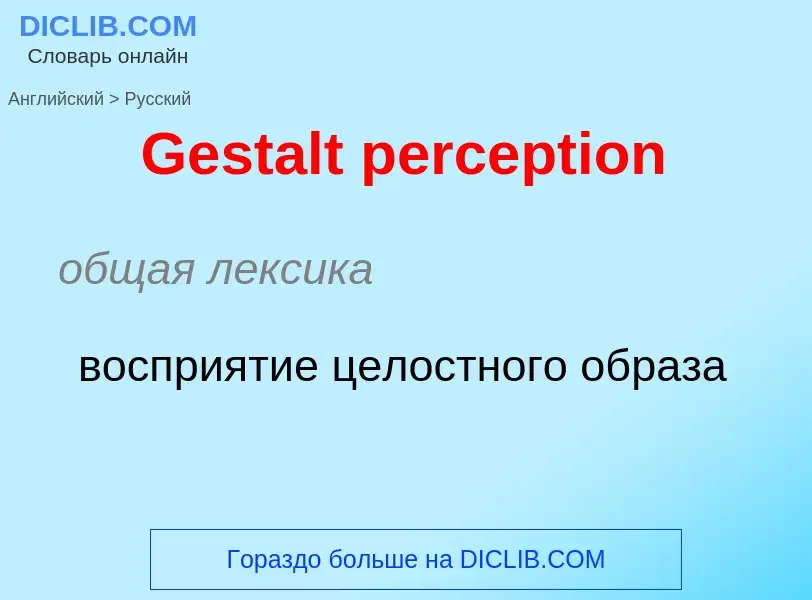Перевод и анализ слов искусственным интеллектом ChatGPT
На этой странице Вы можете получить подробный анализ слова или словосочетания, произведенный с помощью лучшей на сегодняшний день технологии искусственного интеллекта:
- как употребляется слово
- частота употребления
- используется оно чаще в устной или письменной речи
- варианты перевода слова
- примеры употребления (несколько фраз с переводом)
- этимология
Gestalt perception - перевод на русский
общая лексика
восприятие целостного образа
математика
закон подобия
Определение
Википедия
Gestalt psychology, gestaltism, or configurationism is a school of psychology that emerged in the early twentieth century in Austria and Germany as a theory of perception that was a rejection of basic principles of Wilhelm Wundt's and Edward Titchener's elementalist and structuralist psychology.
As used in Gestalt psychology, the German word Gestalt ( gə-SHTA(H)LT, -STAHLT, -S(H)TAWLT, German: [ɡəˈʃtalt] (listen); meaning "form") is interpreted as "pattern" or "configuration". Gestalt psychologists emphasize that organisms perceive entire patterns or configurations, not merely individual components. The view is sometimes summarized using the adage, "the whole is more than the sum of its parts.": 13
Gestalt psychology was founded on works by Max Wertheimer, Wolfgang Köhler, and Kurt Koffka.



